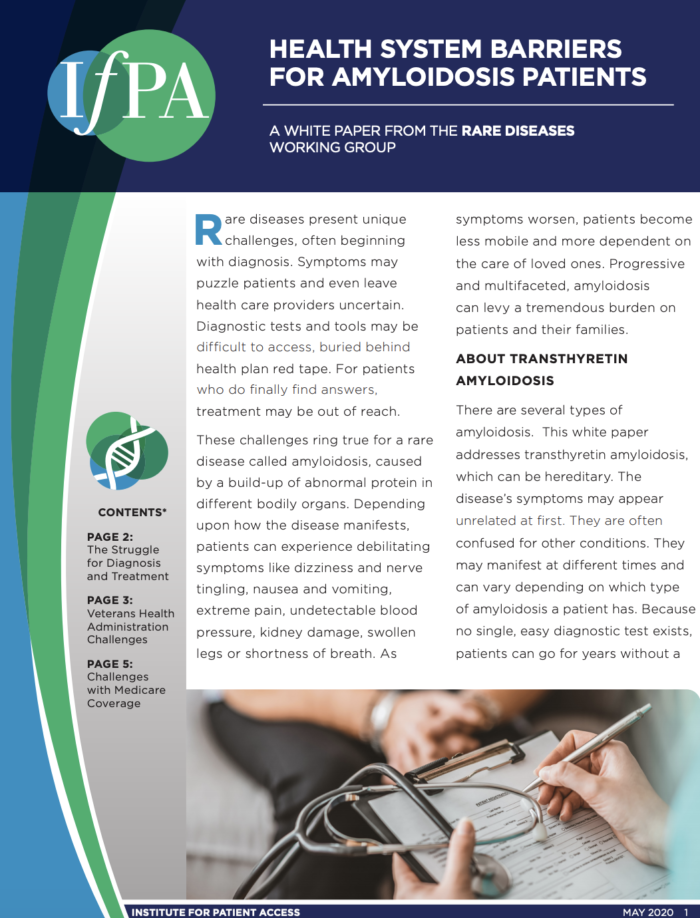New Paper Highlights Amyloidosis Patients’ Struggle for Access
May 5, 2020
It’s rare for a rare disease to have an FDA-approved treatment. Yet transthyretin amyloidosis, a complex disease caused by improper protein build-up, has three. A new white paper details the value of treatment and the struggle for access, as observed firsthand by members of the Alliance for Patient Access’ Rare Disease Working Group.
It begins with diagnosis, explains “Health System Barriers for Amyloidosis Patients.” The rare disease’s symptoms can puzzle providers and patients alike. Insurance barriers further complicate the process of getting diagnosed. Patients must navigate a maze of referrals for specialists and prior authorizations for testing.
Once patients learn they have transthyretin amyloidosis, other insurance barriers can delay access to treatment. The paper details challenges specifically for people covered by the Veterans Health Administration and Medicare, who represent a significant percentage of amyloidosis patients.
Veterans Health Administration Challenges
Accessing the prescribed medication in the correct dosage can be a challenge for veterans with amyloidosis. Patients covered by the VA often have to “fail first,” taking a medication preferred by the VA before accessing the medication their doctor prescribed. This can mean taking a medication that’s not FDA-approved for their form of amyloidosis.
Meanwhile, different VA locations provide the medication in different dosages. Some patients must drive to a VA location in another region to access the dosage they need.
Challenges with Medicare Coverage
Gaining approval for medication is less of a problem for patients covered by Medicare. But these patients often struggle to pay for their medication once it’s approved.
Out-of-pocket expenses can “rival the cost of another mortgage payment—or more—each month,” according to the paper. Commercially insured patients can offset their out-of-pocket cost with co-pay coupons or support from patient assistance programs, but Medicare patients are prohibited from using many of these resources.
While access challenges are significant, they are not insurmountable. Policymakers can improve access for amyloidosis patients through policies that reduce cost-sharing burdens, minimize unnecessary utilization management and support patient-centered care.
To learn more, read “Health System Barriers for Amyloidosis Patients.”
Categorized in: Blog


